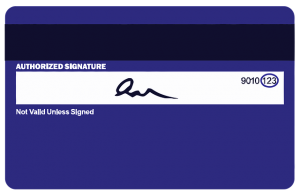 Your company probably already offers employees a variety of benefits. However, there are also several uncommon employee benefits that are appreciated and affordable. Consider offering them as you attract and retain top talent and improve morale.
Your company probably already offers employees a variety of benefits. However, there are also several uncommon employee benefits that are appreciated and affordable. Consider offering them as you attract and retain top talent and improve morale.
Common Employee Benefits
A 2003 small business poll found that several benefits are commonly offered by employers. These benefits and the percentage of small businesses that offer them include:
- Paid Vacations: 75%
- Health Insurance Plan: 61%
- Paid Sick Leave: 59%
- Disability Insurance: 41%
- Education Reimbursement: 39%
- Pension Plan: 30%
- Life Insurance: 29%
- Dental Insurance: 24%
Uncommon Employee Benefits
Take care of several uncommon needs when you offer these atypical employee benefits.
Parking Privileges: Designate spaces near the office for employees or pay for a parking garage or city transit pass.
Company Discounts: Allow employees to buy products at a discount or offer employees first access to new products.
Education Plan: Most employees welcome the opportunity to learn new skills and improve their ability to do their jobs well. Offer tuition reimbursement or schedule free classes.
Direct Deposit: Funds clear faster and are thus available sooner when they’re directly deposited into your employees’ bank or credit union account. You typically save money when you offer this benefit, too.
Wellness Program: Encourage your employees to make health changes when you offer fitness opportunities and challenges, nutrition classes, smoking cessation tips and stress reduction advice. Employee productivity and satisfaction will improve, and you’ll cut health care costs.
Child-Related Assistance: In addition to maternity leave, consider providing adoption assistance, breastfeeding or pumping accommodations, on-site childcare and an on-site family room with kids’ toys and activities.
Sabbaticals: Offer both paid and unpaid sabbaticals based on years of service. With this benefit, employees can pursue advanced education, take mental health breaks or care for an aging parent.
Computer Loan: Let your employees take home their laptops or set up a payment plan that allows them buy their computers interest-free. You can arrange for automatic payroll deductions and sign a formal agreement to ensure you recover the full cost of the computer.
Community Hours: Reward employees who choose to volunteer with regular pay that covers the community hours. You can also pay the entrance or sponsorship fees for community events in which your employees wish to participate.
Title and Business Cards: A level of professionalism and pride is associated with a formal title and business cards.
Religious Holidays: When employees wish to observe religious holidays that fall on a work day, offer to provide a day off with pay.
Your employees work harder and smarter when they receive a healthy benefits package. In addition to the common benefits, consider offering unusual benefits that raise morale and retention.














